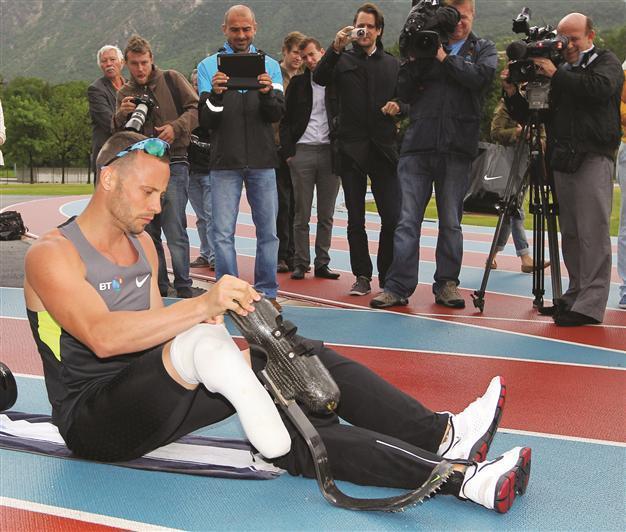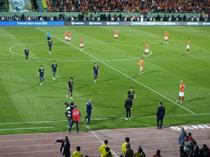Pistorius eyes first London and then Rio
JOHANNESBURG - Agence France-Presse

South African double-amputee sprinter Oscar Pistorius prepares for a training session in Gemona, near Udine, Italy. AP photo
South African Oscar Pistorius will be the first double amputee athlete to compete at an Olympics when he takes part at the 2012 London Games, but he is already looking beyond to the Rio Games in 2016.The 25-year-old, fondly known as the “Blade Runner” because he runs with carbon fiber prosthetic running blades, was pumping iron at a gym in the northeastern Italian town Gemona on July 4 when his coach’s wife rushed in hysterics with the news he had been cleared to run the men’s individual 400m and in the 4x400 meter relay team.
“It was just overwhelming. I think it took a couple of days for it to settle in and I do not think it will fully settle in until I am on the starting blocks in a couple of weeks,” he said in an interview on Laureus.com in Italy, where he was competing at a pre-Olympic event.
Multi Paralympic gold medalist Pistorius is part of his country’s 65-strong Paralympics team and will now become the first double amputee to compete in the able-bodied competition.
The South African Sport Confederation and Olympic Committee (SASCOC) included him in the team though he failed to run a second qualifying time of 45.30 seconds outside the country.
Dismal performance
These strict qualification criteria followed a dismal performance at the Beijing Olympics, where 265 able-bodied South African athletes brought back only one medal and sparked national embarrassment.
“Now that SASCOC has backed me and chosen me and shown that they believe in me, that has added a little bit of pressure, but I believe that the pressure I have put on myself has always been far more than any external pressure,” he said.
The Johannesburg-born runner had both legs amputated below the knee when he was 11 months old because of a congenital condition that meant he was born without fibulae -- lower leg bones.
This hardly hindered his sports activity when he grew up and performed with prostheses. He is perhaps a key reason for the Paralympics’ higher public profile.
















